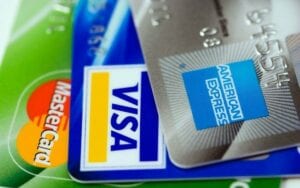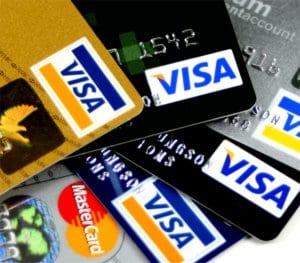How Many Credit Cards Should I Have?
Deciding how many credit lines you need open at any given time
These days, it seems like everyone has their own special credit card that they’re sure you absolutely can’t live without. But while any number of weird credit cards exists in the marketplace, do you really that many accounts open at once or are you simply creating a recipe for disaster with debt?
The number of credit lines you need really depends on personal preference and your ability to manage the debt. At the same time though, it’s important to note that the number of accounts you have does have some impact on your credit score. With that in mind, we’ve put together the information below to help you understand how the number of credit cards you have relates to your credit score and what this means for your overall financial strategy.
Just keep in mind that all of the strategy below really only applies if you are financially stable and able to manage debt effectively on your own. If you are having trouble with debt, another credit card probably won’t get you where you need to be. Instead, call Consolidated Credit today at (844)-402-3073.
Number of accounts and your credit score
Did you know that the number of accounts you have has an impact on your credit score?
Number of accounts isn’t the most important credit score factor – that’s your credit history, or how well you keep up with the monthly payments on all of your accounts. Still though, it’s a factor that plays into your credit score calculation, so it’s essential to understand how it works.
Basically, creditors want to know that you have experience using credit and being successful at managing debt. The more accounts you’ve had open and in good standing, the more creditors can trust you to pay back any new credit they extend when you apply for a credit card. Since your credit score is essentially an assessment of your risk as a borrower, more accounts means a better credit score.
It’s important to note that number of accounts doesn’t just mean credit cards. It also includes loans like your mortgage, auto loan and student loans. So you don’t need to go out and open 20 credit card accounts to hit some magic quota. What’s more, the diversity or mix of accounts you have also plays a role in your credit score calculation, so having 20 credit cards doesn’t serve you as well as having a few cards and a few different types of loans.
According to Intuit Credit Karma who works with the major credit bureaus (TransUnion and Equifax), anything less than 10 accounts is considered “poor” and anything above 20 accounts is considered “excellent,” while “good” is everything in between. It’s critical to note that the total number of accounts includes open and closed accounts. So loans you’ve already paid off or old credit cards you may have cancelled will still count on the total.

The right number of credit cards
In truth, there’s no magic number of accounts that’s perfect for every consumer. Some consumers are fine managing a dozen open accounts at the same time, but for some that’s just too many bills to worry about.
Luckily the account number factor for your credit score includes closed accounts, so you don’t have to have all of this open credit at once – and it’s better if you spread account openings out anyway. That way, when you take on one new debt or credit card, you give your budget and finances time to equalize so you can make sure you can afford that debt before you take on another.
In most cases, consumers are fine having a few credit cards that they actively use at a given time, plus a few loans that they’re actively paying on at the same time. This would essentially mean you have about half a dozen bills to worry about every month. Then however many accounts you’ve closed or paid off will hopefully add up to get the account number credit score factor into the “good” range.
How much will it hurt if I have fewer cards?
In truth, it shouldn’t hurt all that much if you choose to have less credit cards because you don’t want to deal with managing the extra debt. If you choose to have one credit card – or even no credit cards at all – you can still have a good credit score.
In fact, assuming everything else about your credit is great (you have no derogatory marks, your credit history is perfect, and you have a low amount of debt), then you could have no credit cards and still have an excellent credit score. In other words, it’s possible to have a “poor” number of accounts and still have your overall credit score in the excellent range.
On the other hand, having this factor in the “good” range or better is definitely going to make it easier to maintain the credit score you want. Every “good” factor adds up to get you the great score you want. And while you can achieve a “good” number of accounts with loans alone, it’s usually easier to achieve with some credit card accounts included because most consumers usually don’t take out that many loans.
Opened one too many accounts?
You know when you’ve hit the point of having too many accounts for your own financial good if you start to have trouble keeping up with the bills. Don’t let credit card debt payments take over your budget and put your financial stability at risk. Call us at (844)-402-3073 to chat with a trained credit counsellor about your situation.
If you have high credit card balances that you need to pay off, we can help. Talk to a trained credit counsellor today.




